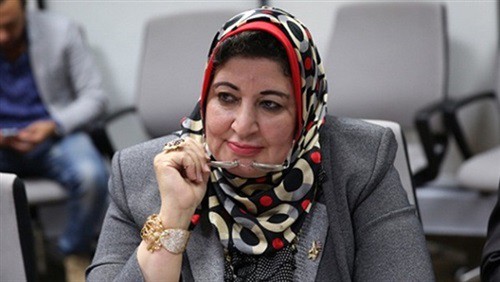If you are a medicine graduate looking forward to receiving your masters degree from a top global university, or even seeking out an experience abroad re-consider because this dream is about to cost you every penny that was ever spent on you.
Parliament and Health Affairs Committee member, Shadia Thabet, announced that work had begun on a new draft law that prohibits the travelling of Egyptian doctors before serving their country for 10 whole years after graduation. In clarification, the MP explained that the reasons for such a law are the shortage of doctors and nursing staff in intensive care rooms in most hospitals, and the lack of engineers and other high ranks that are crucial to the development of the country.
The MP added in a statement to parlamany.com website that the government spends a lot of money on doctors’ education, which gives the doctors no right to deprive them from benefiting from it. She further explained that incapacitating terms should be hoisted upon those who insist on crossing the borders, like forcing them to pay the government back their education fees from primary school up until college, along with giving 20% of their contract to the country.
While there is no argument over the country’s deteriorating state, this doesn’t make this draft law any less humiliating. It is no secret that a government should spend money on the well-being of its citizens, that is the way the world works, yet somehow the suggestion of this law makes it sound like a favor. A favor no fresh graduate can afford to pay for.
If this law is approved and applied, it will force the duty every Egyptian doctor feels they owe to their country. Turning a choice to an obligation will make them not only want to flee the country more but also feel as if they trapped, and theoretically, they will be.
The side effects to such a law do not just end there, because this will forever kill any graduate’s chance of receiving masters or doctoral degrees from global universities. And, given the little attention the country devotes to researchers and studies, this would also cut our graduates’ horizons, keeping them locked up in their small circle instead of exploring other options which would eventually contribute to the best interest of our country.
Would the government have been able to provide Dr. Zewail, Dr. Magdi Yacoub, Dr. Farouk El Baz, and many others with the same opportunities they had on the outside, if they had stayed? A question that must automatically pop into our heads. Every other Egyptian scientist that astonished the world with their findings eventually came back to his country and paid it back, not because the country forced them into it, but because they wanted to. It’s no secret that great minds can find more facilities and attention in developed countries than in developing countries.
Trapping our productive minds doesn’t mean we save whatever good they are capable of producing for ourselves. No, it means that we put limits to who they are and who they could possibly be and, thus, what they are capable of doing for us. We are diminishing the possibility of any of our girls being like Deena Mousa, the 17-year-old Egyptian who just won a Nasa and a Google award for her latest invention. We are limiting the ability of great minds to create.
There was a time when King Mohamed Ali intentionally sent Egyptians to different countries for scholarships, so that, when they returned, they would actually have something to offer their country. There is no shame in admitting our shortcomings, but there is definite shame in holding our citizens back from whatever awaits them, in trapping them merely for the crime of their nationality.
Sara Amr Rifaat

